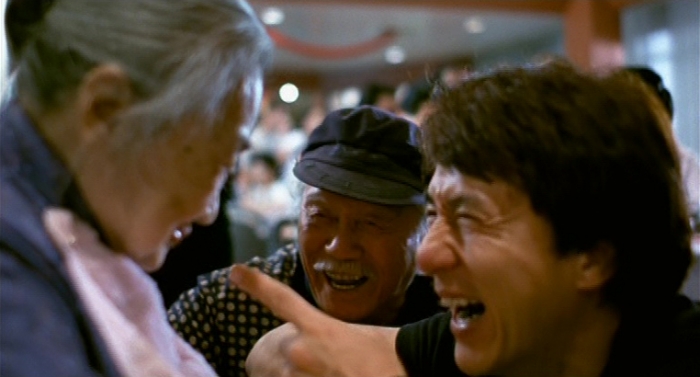
On the trails of the dragon: Jackie Chan’s family tree
It should come as no surprise that Jackie Chan is not the real name of the famous Hong Kong film star. Even Jackie was shocked by the truth about his name and his origins when his father revealed a truth to him in the late 1990s that affected many Chinese of their time.
At the end of this article I have displayed a graphic overview of the turmoil in Jackie Chan’s family life in a very large image file. But before I present you this work of several weeks. I would like to start a review and explain things that cannot be recognized from the family tree in the appendix.
Jackie Chan learns the truth
Jackie Chan was born on April 7, 1954, in Hong Kong, as the only son of Charles Chan and Lily Chan. As a kid, he was hyperactive, never sat still, and was the class clown so the teachers never got along with him. At some point, father Charles Chan decided to bring his son into the care of Master Yu Jim-Yuen from whom he should learn the art of Peking Opera under the toughest conditions.
Jackie Chan’s education lasted ten years, teaching him not only martial arts, but also singing, acrobatics, acting and more. All skills that should be useful to him in his later film life. Meanwhile, he was told that his parents had to move to Canberra, Australia, for professional reasons.
When Jackie finally hit the breakthrough in 1978 after several failures box office successes followed. From then on, Jackie Chan was travelling from film set to film set and around the world for promotions. His father Charles Chan often accompanied him to spend the lost time with his son. And Jackie often heard that his father kept sending money to China.
Jackie never questioned that out of respect for his father and because he just didn’t have time for private matters. But at the end of the 1990s, when Jackie achieved his worldwide breakthrough as a superstar with “Rush Hour” (1998), his father took him aside and told him about his own life. Even if Jackie already suspected a lot, he was amazed to hear the story from the mouth of his own father. He decided to record it all for posterity. Without further ado he hired the filmmaker Mabel Cheung and the result was the award-winning documentary “Traces Of A Dragon: Jackie Chan & His Lost Family” (2003).
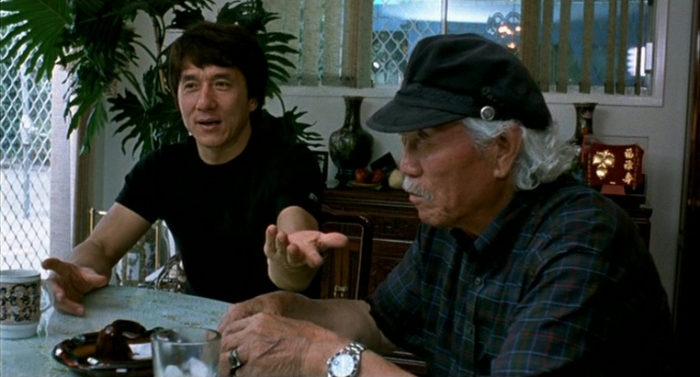
The story of Charles Chan Chi-Ping
Charles Chan Chi-Ping was born as Fang Daolong in Shandong, China, in 1915 and is part of the Fang’s family tree. The rural life at the time was so tough that his family moved to Wuhu, Anhui, China, when he was nine years old, and moved to Nanking shortly afterwards.
Charles Chan attended school in Nanking until he left it without a degree at the age of 15. He went straight to Shanghai and began an apprenticeship as a cloth merchant. His father taught him a little martial arts but at the age of 16 he attended Master Zhang’s Hong Boxing School in Shanghai for three years; mostly he was trained there by his wife. At 20 he finished his apprenticeship and returned to Nanking.
Charles Chan’s father, Jackie Chan’s grandfather, was a respected man in the military and got his son a job with General Gu as a bodyguard. But because Charles Chan was shabby and dropped his gun while on duty, he was fired. From then on he worked with seven buddies until he landed on a Mitsubishi ship in Wuhu and smuggled goods from Nanking to Wuhu and back.
At that time, the Sino-Japanese War took place and the Japanese occupied parts of China. They caught Charles Chan smuggling and threw him in jail – not because of the smuggling, but because they didn’t get a share. After four tough days, they were forced to watch an execution. They were then put away again only to have to attend an execution again a week later.
“We thought we were going crazy,” explains Charles Chan wide-eyed in the aforementioned documentary in the presence of his son Jackie. Thanks to contacts with the army, Charles and his pals were eventually released but only five out of seven made it out alive. Charles Chan’s father again asked General Gu for assistance, this time using Charles as a secret agent under the direction of Dai Li.
But because of the inflation and poor pay, they could barely afford to eat, so he and his gang resigned and went back to Shanghai. Charles Chan was the leader of the notorious Shandong gang – so notorious that the gang was attempted to be murdered a few days before the official attack on Dai Li himself. Charles Chan was hit by bullets several times but survived.
As a nationalist he was a welcome target of the communists and was constantly on the run. So he flew back to Chungking and three to four months later back to his old homeland to his parents. There he learned that his parents and older sister had been killed in air raids. The Shandong gang moved around the houses, everything was in ruins, and tried somehow to survive.
Years later, in Anhui, Charles Chan met his first wife, whose name unfortunately remains unknown. They married in Wuhu and had two sons together. When the older son was about 8 years old, it must have been around 1947, Charles Chan’s wife died of cancer. At the same time, the civil war broke out in China. As a nationalist, Charles Chan had to flee and left his two sons behind.
His escape took him back to Shanghai where he found work as an inspector in the port. One day he caught a young lady smuggling but out of pity he let her go. She would later become Jackie Chan’s mother. The years passed without contact with his young sons, and when the founding of the People’s Republic was proclaimed in 1949, the defeated nationalists had to flee again. The primary destinations were Taiwan and Hong Kong.
This time, however, it seemed to be forever and Charles Chan was aware that he would never see his sons again. He officially changed his name from Fang Daolong to Chan Chi-Ping, practically taking on the family name of his girlfriend, the lady he had let go a few years earlier at the port and with whom he has had a relationship ever since.
Around 1948/49 Charles Chan fled by express train to Hong Kong where he found a job through a friend at the French consulate on Victoria Peak where he learned to cook. He was initially a maid for everything. A short time later, he was followed by Lily Chan, his girlfriend, they married in Hong Kong and started a new family with Jackie Chan as their first and only child.
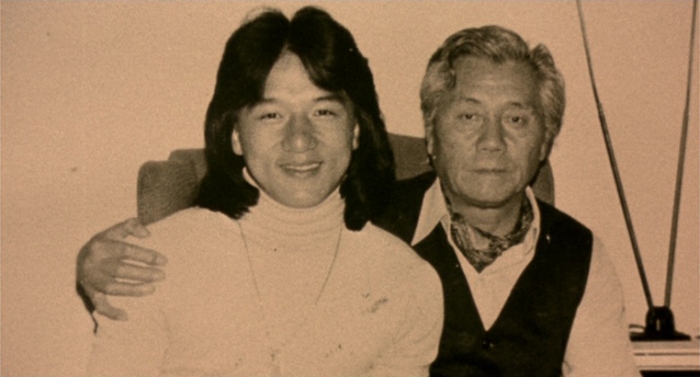
The story of Lily Chan
Less is known about Jackie Chan’s mother than about his father. That may well have to do with the position of women in Chinese society in general. Lily Chan was born as Chen Yuerong in 1916 in Wuhan, China, a straggler to her parents. Her mother raised her more like a son so she could face the tough world.
Her mother ran a grocery store resembling a corner shop that was doing well and initiated the marriage between her daughter and a respected young man in the area. The couple had two daughters but Lily’s husband was killed by a bomb on the first day of the Japanese air raid on Wuhu, on the day the older daughter, barely four years old, brought his food to the train station where he worked.
Lily took her younger daughter and scoured the rubble at the train station in search of her firstborn – she found her. But because of the war and the elimination of the bread-earner in the family, her mother-in-law wanted to sell her to a wealthy man from the area. Shocked by this, Lily Chan grabbed her two daughters and ran back to her own mother. Out of necessity, she began to smuggle opium when one day she met an inspector at the port who kindly let her go and did not put her in jail.
Lily Chan didn’t just smuggle opium. When she fled to Shanghai without her children, she was quickly known underground there as the “Third Sister”. She came into the casino with a whip, was a gambler, drank and smoked like a chimney. She also worked as a maid in the upper class of Shanghai and taught herself English. As soon as Lily Chan gained a foothold, this was done with the help of a port controller we already know of, she brought her two daughters to Shanghai.
But when the relationship with Charles Chan became more serious, she gave up everything in Shanghai and followed her love to Hong Kong in April/May, 1951. Lily Chan, leaving her two daughters behind, took the train to Macau and went as a stowaway in the port of Macau on a small ship that set sail for Hong Kong – some refugees regularly died on that route.
In Hong Kong, Charles Chan was already waiting for his girlfriend, got her a new name (Lily) and a permanent job at the French consulate as a maid, they married and began their new lives with the birth of Jackie Chan in 1954 – always with the quiet thoughts of their families somewhere in China, dead or alive.
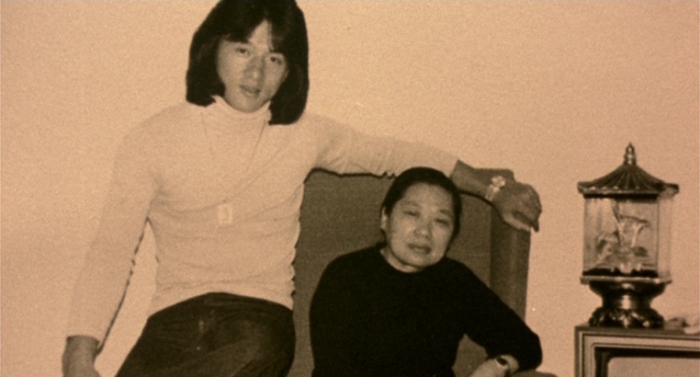
The story of Jackie Chan’s parents
As if the respective stories of Jackie Chan’s parents through wars, relocations, deaths and illegal business as well as dubious espionage weren’t confusing enough, from 1954 there were serious gaps in the joint résumé of the two.
The fact is that both worked for the French consulate on Victoria Peak in Hong Kong. They lived in a servants’ apartment block on the top floor, very close by.
There, they raised little Jackie who was used to playing with the children of ambassadors from all over the world. Jackie even defended his first love at a very young age from local bullies. From 1961 on, Jackie attended Master Yu Jim-Yuen’s China Drama Academy while his parents continued to live and work on the Peak.
Just a few months later, Charles Chan told his son Jackie that he would have to go to Australia for a while and that they would not see each other for a long time. The official information contradicts one another here: Charles Chan was transferred to the service, it is said, and followed his boss, Ambassador Marshall Green, to Canberra in Australia. But Marshall Green could not have been his boss at the French consulate because he was the ambassador of the US consulate.
Due to some unknown procedure, Charles Chan must inevitably have changed from an employee of the French consulate in Hong Kong to an employee of the US embassy in Canberra. That seems very unusual, and precisely this change is not referred to in any source. But I will come back to this point later.
So while Charles Chan was immediately working for the US embassy in Canberra, his wife Lily Chan continued to live on the Peak and continued to work for the French consulate. But a short time later she also left Hong Kong and with it Jackie to follow Charles to Canberra. Between 1963 and 1971 Jackie lived alone with Master Yu Jim-Yuen and dozens of other students from the China Drama Academy.
Unlike his first family, Charles Chan and his wife Lily this time kept in touch with their son Jackie and regularly sent tapes with their voices and some money. When he graduated in 1971, Charles Chan was in Hong Kong and showed Jackie an apartment that he bought for his son and where Jackie lived from 1971 on – he still owns the apartment to this day.
How can a simple employee at an embassy abroad afford a condo in the middle of Hong Kong and pay it off debt-free? Jackie’s parents had plowed and saved money for years to do just that. In their second chance, they wanted to finally be able to offer their offspring a better life, something they had never been able to do with their families in the Chinese countryside.
As is well known, Jackie Chan tried his luck in Hong Kong films, finally had success in 1978 and was a superstar in all of Asia and later also in the whole world from 1980 on. While Jackie was travelling around the world in the 80s, often accompanied by his father, Charles Chan actually found his two sons in China thanks to the help of the embassy – but he did not tell Jackie about it yet.
Charles Chan sent more and more money to China, wrote letters and made personal contact with his sons who had not seen their father for decades. Jackie Chan seemed to suspect something, especially since his mother Lily Chan brought her daughter to Canberra in the 90s to take care of her aging mother. So it could be that Jackie’s father also had a second family. And that is exactly what his father revealed to him and portrayed in the aforementioned documentary “Traces Of A Dragon: Jackie Chan & His Los Family” (2003).

The story of Jackie Chan’s half-siblings
Jackie Chan first found out about his two half-sisters, his mother’s daughters. Chan Yulan was the older daughter, born around 1943, and Chan Guilan, the younger daughter was born around 1949. Chan Yulan was the one who went to bring him the food on the day her father died and was found in the rubble by her mother and little sister.
She started working in Shanghai when she was twelve because her mother was poor. Even after she left her mother little Chan Yulan worked and raised her younger sister. She once lived in Xinjiang. When Charles wrote her a letter the communists got their hands on it and, in a cruel tradition, drove his daughter-in-law down the street and interrogated her husband – suspected espionage.
Chan Guilan, the younger daughter, moved to Australia at some point and lovingly looked after her mother until her death in February 2002.
Even though Jackie finally found out about his half-brothers in the country at the end of the 90s it was not until 2013 that he finally visited them in their home town of Wuhu. Fang Shide, the older brother, was born in 1940, and Fang Shisheng, the younger brother, around 1946. For decades, they had little memories of their father but Fang Shide often thought of him.
Since there was no work, no food or no guardians during the war, Fang Shide and Fang Shisheng played outside all day. From 1966 he and his brother had to beg because they were so poor. Where Fang Shide never went against the system and always complied, Fang Shisheng, as a revolutionary, always liked to mess with the regime. Fang Shide worked as a postman, Fang Shisheng, who was dubbed “Poisonous Weeds” and was re-educated for seven years, built a small pigsty and worked in it from then on.
After decades, both sons did not meet their father Charles Chan again until 1985 at the Guangzhou train station. Fang Shisheng, the younger of the two, said in the documentary that through the years he had always dreamed of his father sitting on a plane that flies in the sky but is never allowed to land because there is no airport.
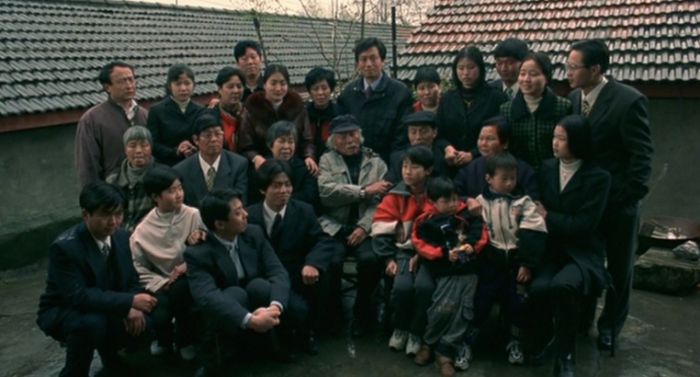
The story of Jackie Chan
As not to have to repeat ourselves, let’s jump straight to 1982. December 1, 1982 to be precise. The location was Los Angeles, USA, and only a few eyewitnesses were in a small office. In front of an officer were a heavily pregnant Joan Lin Feng-Chiao, a former successful actress from Taiwan, and Jackie Chan. The couple married in secret. Their son Jaycee Chan was born two days later.
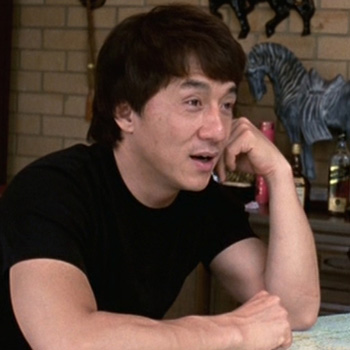
When the press in Asia learned that Hong Kong’s most sought-after bachelor, Jackie Chan, was no longer single and even had a son, Japanese fans started committing suicide. From that day on, Jackie Chan kept his private life absolutely secret and forbade his team to talk about his family.
While Joan Lin Feng-Chiao retired from the film business and raised their son Jacyee, Jackie jetted around the world, from film to film, from appointment to appointment. The family fell by the wayside but the father was there for the most important dates like Jaycee’s graduation.
Years went by, Jackie’s success increased, and thanks to the worldwide breakthrough of “Rush Hour” (1998), the Hong Kong star was now on an ego trip. In 1999, he got involved in an affair with the former model Elaine Ng – from this rendezvous their daughter Etta Ng emerged.
In the articles “Etta Ng, Jackie Chan’s illegitimate daughter, has her coming out” and “Jackie Chan’s daughter claims she is homeless because of homophobic parents” I explain the background in more detail. Joan Lin Feng-Chiao and Jaycee Chan forgave Jackie and even founded a new family film company Jackie & JJ Productions in 2009. (More on this in the article “Film logos and their meanings: Jackie Chan’s film companies and their intros from 1980 to today“.
The story of the Fangs
As we now know, Jackie Chan, his father and his grandfather belong to the Chinese “Fang” family. Like other family tribes, the Fangs can be traced back centuries in China’s history. When the documentary “Traces Of A Dragon: Jackie Chan & His Los Family” (2003) shows recordings from Wuhu, the home village of Charles Chan and his sons, the camera team witnesses the family shrine.
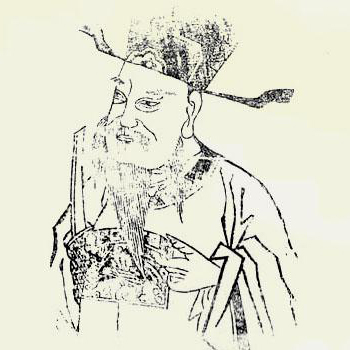
In the family shrine there are dozens of records about family members of the Fangs. Jackie, his wife Joan, and their son Jaycee have officially been added to the family tree. But in one shot you see a familiar face, drawn, but familiar.
This is Fang Xuanling, a politician and historian of the Chinese Tang Dynasty, who is said to have lived between 579 and 648. Fang Xuanlin’s maiden name was Fang Qiao and was posthumously known as the Prince of Wenzhao by Liang. His influence on Emperor Tang Taizong, bearer of the Tang Dynasty, was so enormous that historical anecdotes, which are to be regarded as facts, were written down in the “Book of Tang”.
The story of Fang Xuanling can now be read in detail on certain websites and in historical encyclopedias. The parallels to the political and military relations of the Fangs in the Sino-Japanese War and before and afterwards is astonishing. And as if that weren’t enough, Jackie Chan processes his story and that of many Chinese in his blockbuster “The Myth” (2005) thanks to elements such as the military and time travel.
With a historical gap between the Tang Dynasty Fangs and the Qing Dynasty Fangs and beyond, Chinese authorities have invested countless resources for years to digitally capture family trees from the country to provide a more accurate picture of Chinese history to draw. It stands to reason that this family tree will be expanded to include Jackie Chan in the next few years and decades.
Missing Link – Were Jackie Chan’s parents spies all their lives?
As mentioned in several places in the article, Jackie Chan’s father, Charles Chan Chi-Ping, whose real name was actually Fang Daolong, was a Chinese nationalist at a time when China was constantly at war. Thanks to contacts with the military, which his father already had, the communists liked to accuse him of espionage and other illegal activities.
One will probably never find out the full truth. But one thing remains astonishing: After years of service, a chef at the French embassy in Hong Kong changes his job to an unknown professional position at the US embassy in Canberra and has to leave almost overnight. There are also contradictions that Charles Chan followed his boss Marshall Green to Australia, who was, however, US ambassador and was only transferred to Canberra in 1973 by the then incumbent US President Richard Nixon – not at the beginning of the 1960s, as the official statements in presuppose Charles Chan case; because Jackie was just admitting to the China Drama Academy as a child when his father had to leave him.
Did Charles Chan continue to work as a spy and changed employers – perhaps with various countries’ consultation – to seek protection at the US embassy in Australia? Such statements are not a conspiracy, as his son Jackie Chan said in an interview with APP in September 2017.
Click here for the APP article.
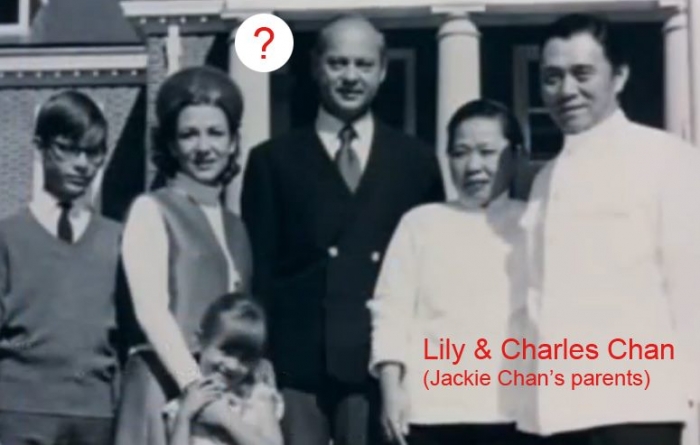
So who are these people in the photo that was taken on Victoria Peak, most likely on the grounds of the French embassy? The French ambassador at the time and his family would be logical, but so far I have not been able to find out which of them it could have been at the time.
Click here for the official overview of French ambassadors in Hong Kong.
The Jackie Chan Family Tree (Infographic)
As mentioned at the beginning of this detailed article, I am now presenting the infographic on Jackie Chan’s family tree that I created over weeks of work. If you paid attention in the section “The story of Jackie Chan’s half-siblings” and took a closer look at the photo, you should now notice that not all family members are listed. This is mainly due to the fact that despite in-depth research into film material, Chinese pedigrees and information from Chinese authorities and TV broadcasters, many family members want to remain anonymous.
Due to the explosive nature of the possible membership of the famous Fang family during the Tang Dynasty, the People’s Republic of China has committed itself to closing the missing gaps. Nationwide officials have been roaming the family villages for years and digitizing centuries-old ancestral tables.
The future is sure to have more surprises in store for Jackie Chan’s family history. And when these become public, it will be reported right here.
Click here to download the infographic in the highest quality.
Right mouse button > save target as …
[6930 x 10351 px, 3.39 MB]
